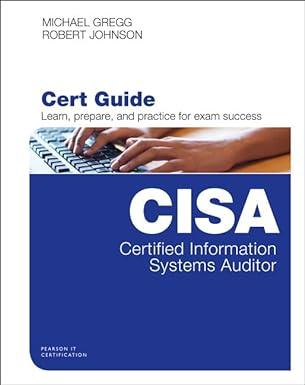Question
On 12 August 1997, Xiao created a trust for the benefit of his children. The trust was initially settled with $50,000. The trustee (Cameron) invested
On 12 August 1997, Xiao created a trust for the benefit of his children. The trust was initially settled with $50,000. The trustee (Cameron) invested the money wisely (e.g. shares, publicly listed trusts) and eventually built-up assets to the point that the trust now owns three residential rental properties in Melbourne (two still have loans on them) and a portfolio of shares and investments in publicly listed trusts. The trust has three beneficiaries, Sara, Tran and Song. The interests of beneficiaries in the trust are divided into units; Sara has 30 units, Tran has 50 units and Song has 20 units. None of the beneficiaries paid for their units when issued to them back in 1997. Each unit provides for annual income (if any) entitlements and for capital entitlements.
After considerable discussion and negotiation, Cameron makes an in specie distribution of one of the properties (Blackburn property) to Song on 12 May 2021. In return, Song gives up her units in the trust (redeemed by Cam). The Blackburn property was purchased in July 2013 for $400,000 and it is worth $880,000 on transfer to Song. There was no debt on the Blackburn property.
Has the trust (Cameron as trustee) and/or Song made a capital gain (or capital loss) on the above facts. Do not advise on a capital gain made through s 115-215(3). Show calculations, if and where required. Fully explain your advice by reference to income tax legislation and income tax principles.
Step by Step Solution
There are 3 Steps involved in it
Step: 1

Get Instant Access to Expert-Tailored Solutions
See step-by-step solutions with expert insights and AI powered tools for academic success
Step: 2

Step: 3

Ace Your Homework with AI
Get the answers you need in no time with our AI-driven, step-by-step assistance
Get Started


